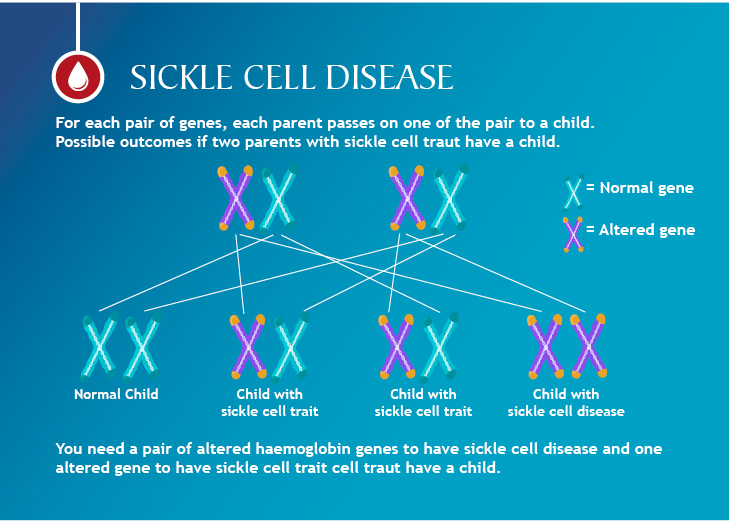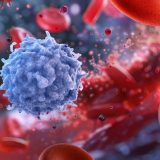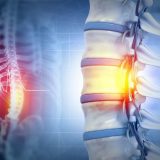Stem Cell Blog
Употребата на матичните клетки од папочна врвца рапидно се зголемува. Пред 10 години крвта од папочна врвца можеше да лекува околу 40 состојби, но денес таа бројка е над 80. Со нетрпение очекуваме нови терапии за болести и нарушувања како што се дијабет, аутизам и мозочен удар, можете да бидете во тек со најновите случувања во регенеративната медицина на нашиот блог за матични клетки.
Last week changes to the newborn screening programme were announced. Babies will now be screened for 9 illnesses instead of the previous 5 illnesses.
The new-born screening programme involves taking blood from a baby in their first few weeks of life; this is done through the heel-prick test, also known as the Guthrie test. By screening babies for these illnesses, they can receive treatment much more quickly for illnesses which can have devastating effects if left undiagnosed and untreated.
The Guthrie test previously screened babies for only 5 illnesses which are:
• Phenylketonuria (PKU),
• Congenital hypothyroidism (CHT),
• Sickle cell disease
• Cystic fibrosis
• Medium-chain acyl-CoA dehydrogenase deficiency (MCADD).
The test now includes the following 4 illnesses:
• Maple syrup urine disease
• Homocystinuria
• Glutaric acidaemia type 1
• Isovaleric acidaemia
This week we will be learning more about Maple Syrup Urine Disease (MSUD) and Isovaleric Acidaemia (IVA). Both MSUD and IVA are genetic conditions. This means if both parents are a carrier of the gene each baby they have together will have a 25% chance of being born with the condition, 50% chance of being a carrier for the condition, and a 25% chance of being unaffected – thankfully both of these conditions are incredibly rare.
MSUD and IVA are also both metabolic conditions. A metabolic disease is a condition where the body is unable to break down the food we eat to turn it into fuel. Enzymes are responsible for breaking down specific substances; in metabolic conditions this process is not effective of breaking down certain substances. This can result in a build-up of toxins which can be incredibly harmful to the body as the body has no way to eliminate these toxins.
Over the course of the week we will be looking at Maple Syrup Urine Disease and Isovaleric Acidaemia in more detail in order to raise awareness of both of these rare conditions.
September is Sickle Cell Disease Awareness Month, and so we are raising awareness of this often painful illness.
Sickle Cell Disease is an inherited condition which is passed down to children whose parents both carry the Sickle Cell Trait. The sickle cell trait is a recessive gene, when both parents carry the gene their children have a 50% chance of becoming a carrier, a 25% of being born with sickle cell disease and a 25% of being born without the illness or trait.In the UK, sickle cell disorders are most commonly seen in African and Caribbean people, however, the disorder also affects people of African, Caribbean, Middle Eastern, Eastern Mediterranean and Asian descent.
Sickle cells occur when the haemoglobin in red blood cells is abnormal and causes the red blood cells to become stiff and sickle (crescent) shaped instead of the flexible disc shape of regular red blood cells.
The crescent shape of sickle cells can cause problems for suffers due to their inability to move around the body as effectively as normal red blood cells. Sickle cells can cause blockages which can cause tissue or organ damage and episodes of severe pain. These episodes of pain are known as a sickle cell crisis or a vaso-occlusive crisis. These episodes of pain can last from a few minutes to several months however they are typically last around 5 – 7 days.
There is a variety of treatments available to treat sickle cell disease and for severe cases doctors may turn to a stem cell transplant. Unfortunately, sickle cell disease is common in those communities who are under-represented in bone marrow and cord blood registries making it difficult for many families to find a suitable stem cell match from a public bank to treat their loved one. However, a patient is more likely to find a suitable match within their family, banking cord blood increases the odds of finding a stem cell match for the whole family.
September is Leukaemia and Lymphoma Awareness Month, we’re taking part by raising awareness of the conditions and how stem cells can help.
Leukaemia is cancer of the blood; there are 4 main subtypes of leukaemia:
Acute Lymphoblastic Leukaemia (ALL)
Acute Myeloid Leukaemia (AML)
Chronic Lymphocytic Leukaemia (CLL)
Chronic Myeloid Leukaemia (CML)
Leukaemia is the 11th most prevalent cancer in the UK and affects people across all age groups and ethnicities and is the most prevalent cancer in children, accounting for 31% of cancers diagnosed.
The symptoms of Leukaemia can be quite generic; some of the symptoms for AML are bone or joint pains, breathlessness, fever, tiredness, frequent infections, pale skin and easily bruised skin. This list is not exhaustive but if you or your child are presenting with these symptoms it is best to discuss them with your GP. While it is highly unlikely that these symptoms are caused by AML it is important to get them investigated as early detection saves lives.
One of the treatments for Leukaemia is a stem cell transplant. When in need of a stem cell transplant doctors will turn to family members to donate bone marrow or to a public bank if a stem cell match cannot be found within the family. However, in the instance that a cord blood sample is available within the family, the odds of a family match being found are increased as cord blood is easier to match and graft to a patient than bone marrow.
Over the course of the week we will be looking at the causes, symptoms and risk factors of leukaemia as well as taking a look at stem cells. We will introduce you to some real-life stories of leukaemia sufferers, including Casey Turner’s story and how Cells4Life have helped her.
Amanda Turner* shares the story of her daughter Casey’s cancer diagnosis and how Cells4Life have given Amanda’s unborn baby the chance to be Casey’s life-saver.
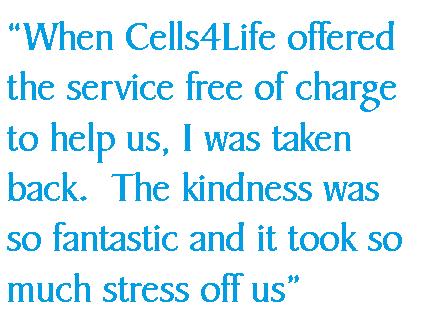 Casey Turner is a typical 12 year old girl; she loves animals and being with her friends. Casey loves horses and has rescued many animals, giving them a fresh start in life. She’s kind, thoughtful and encourages everyone to try their best to achieve their dreams. But now it is Casey who needs help for a fresh start. Casey was diagnosed with Acute Myeloid Leukaemia, blood cancer; a devastating blow to her family.
Casey Turner is a typical 12 year old girl; she loves animals and being with her friends. Casey loves horses and has rescued many animals, giving them a fresh start in life. She’s kind, thoughtful and encourages everyone to try their best to achieve their dreams. But now it is Casey who needs help for a fresh start. Casey was diagnosed with Acute Myeloid Leukaemia, blood cancer; a devastating blow to her family.
Amanda, Casey’s mum, recalls the moment she found out Casey had childhood cancer: “When we found out she was very ill it broke our hearts. I was so scared and I didn’t know if my baby girl was going to die, I didn’t know what to do. It has to be the worst day of all our lives!”
Amanda is currently pregnant and had donated the umbilical cord blood from some of her previous births, so when a friend mentioned that Amanda could store the cord blood of the baby she was carrying for Casey’s benefit, she decided to find out more and requested a Welcome Pack from Cells4Life.
 Determined to give her child the best chance possible, Amanda began fundraising with the help of a close family friend. The money was to be used for expenses that Casey would incur through treatment and to cover the cost of storing her baby’s cord blood. Amanda was impressed with the possibilities that Cells4Life could provide when storing cord blood, not only could storing her unborn baby’s cord blood be used as a possible stem cell match for Casey but it could also be used to give her access to regenerative medicine should chemotherapy take its toll on Casey’s body.
Determined to give her child the best chance possible, Amanda began fundraising with the help of a close family friend. The money was to be used for expenses that Casey would incur through treatment and to cover the cost of storing her baby’s cord blood. Amanda was impressed with the possibilities that Cells4Life could provide when storing cord blood, not only could storing her unborn baby’s cord blood be used as a possible stem cell match for Casey but it could also be used to give her access to regenerative medicine should chemotherapy take its toll on Casey’s body.
Casey’s story was picked up by local news and when Cells4Life heard about this, we decided to make contact with the family. “When Cells4Life offered the service free of charge to help us, I was taken back. The kindness was so fantastic and it took so much stress off us,” Amanda said.
Reflecting on donating the cord blood of her other children, Amanda expresses disappointment at not being made aware of all the options available to her. “I did donate my children’s cord blood years ago because I did not know about storing it in a family bank, the NHS only gave information on donating it and don’t give you information about regenerative medicine. I think more information should be made available to people to let them make their own choice as to what they do with their baby’s cord blood. If I had not been lucky enough to have another baby, I would have been upset at the possibility I had I lost because of the lack of information that was provided to me. I’m glad I have this chance and I have done what I wanted to do now I know the options available.” However, Amanda supports cord blood donation and doesn’t regret her decision to donate the cord blood from her previous births: “it is also good to donate cord blood as it helps many people all over the world. I did donate with my other children and then I was happy to do so. It was nice to know it can help people.”
Amanda expresses disappointment at not being made aware of all the options available to her. “I did donate my children’s cord blood years ago because I did not know about storing it in a family bank, the NHS only gave information on donating it and don’t give you information about regenerative medicine. I think more information should be made available to people to let them make their own choice as to what they do with their baby’s cord blood. If I had not been lucky enough to have another baby, I would have been upset at the possibility I had I lost because of the lack of information that was provided to me. I’m glad I have this chance and I have done what I wanted to do now I know the options available.” However, Amanda supports cord blood donation and doesn’t regret her decision to donate the cord blood from her previous births: “it is also good to donate cord blood as it helps many people all over the world. I did donate with my other children and then I was happy to do so. It was nice to know it can help people.”
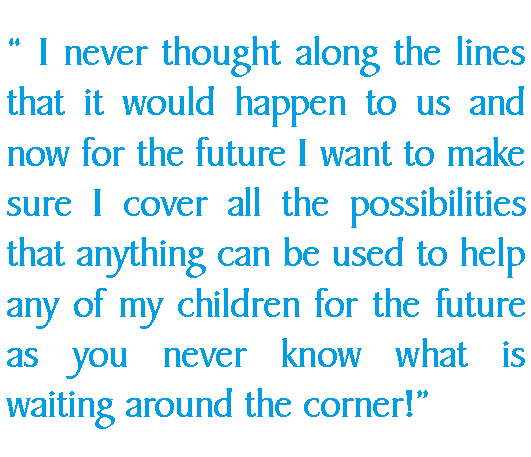
*Names have been changed at the request of the family for confidentiality, pictures posed by models.
September is Leukaemia and Lymphoma Awareness Month, we’re raising awareness of lymphoma and how stem cells can help to show our support.
Lymphocytes are the white blood cells that help to protect our bodies from infections and diseases; lymphoma is a blood cancer which is the result of these cells behaving abnormally. Lymphocytes which begin to behave abnormally may live longer than they are supposed to or divide more quickly than normal cells [1].
Lymphocytes flow through the body in a clear fluid called lymph; lymph travels through lymphatic vessels which form part of the lymphatic system, which in turn forms part of the immune system. Hodgkin and non-Hodgkin lymphoma are uncommon cancers which develop in the lymphatic system [2] [3].
In lymphoma, lymphocytes begin to multiply in an abnormal way, they lose their ability to fight infection, making sufferers more susceptible to contracting infections. The abnormal lymphocytes begin to gather in certain parts of the lymphatic system such as the lymph nodes (glands) [2].
The most common symptom of Hodgkin lymphoma is one or more painless swellings in the following areas:
Neck
Armpit
Groin
These swellings are enlarged lymph nodes. About 70% of people diagnosed with Hodgkin lymphoma have a swollen lymph node in their neck. Lymph glands commonly swell if we have an infection but they then usually go back to normal over a short time. With a lymphoma the lymph nodes often grow slowly and may be there for months or years before they are noticed. But sometimes they grow very quickly [4].
While swollen nodes are usually painless, some people report that the lumps are painful and some note that that are painful after drinking alcohol.
[1] http://www.lymphoma.org/site/pp.asp?c=bkLTKaOQLmK8E&b=6299689
[2] http://www.nhs.uk/conditions/Hodgkins-lymphoma/Pages/Definition.aspx
[3] http://www.nhs.uk/Conditions/non-hodgkins-lymphoma/Pages/Definition.aspx
For World Diabetes Day, we are raising awareness of this illness which costs the NHS 10% of its budget.
While there are several kinds of diabetes the most common are Type 1 and Type 2. Glucose is a kind of sugar which gives us energy, diabetics are unable to utilise this sugar due to a number of factors including no insulin, a lack of insulin or insulin not working properly.
Insulin is a hormone produced by the pancreas which regulates the amount of glucose in the blood. In type 1 diabetes the body has an inability to produce insulin, whereas in type 2 diabetes the body does not produce enough insulin or the insulin produced does not work properly.
For diabetics eating a balanced diet is particularly important to help prevent the occurrence of high and low blood sugar; hypoglycaemia (to little glucose in the blood) and hyperglycaemia (too much glucose in the blood).
The number of diabetics in the UK is growing with the current figure at an estimated 1.6 million people.[1] This number is expected to rise to 4 million people by 2025. Currently, diabetes costs the NHS £25,000 a minute.[2]
Developments in stem cell research have yielded some positive results for diabetes. However, there is no cure available to the general public for diabetes at this moment in time.
[1] http://www.netdoctor.co.uk/diseases/facts/diabetesinsulindependent.htm
Your baby’s umbilical cord blood is the richest known source of stem cells from the human body. Here we’ll take a look at stem cells in more detail to find out what they do, what they are and why they are so special.
Stem cells are the building blocks of life, in fact the very first cell created at conception is a stem cell and every cell created after that could, theoretically, be traced back to that single cell. As the cells continue to divide after conception the stem cells become more and more specialised to create every single organ, every single hair and every single cell of your baby.
There are many different kinds of stem cell and one of the most controversial kinds of stem cells is the embryonic stem cell. Stem cells are the master cells of the body, this means they can transform into specialised cell types as needed by your body. Embryonic stem cells are chosen for research by some scientists due to their ability to differentiate (become specialised cells); these cells come directly from an embryo. Embryonic stem cells are not found in umbilical cord blood, cord blood is a completely ethical source of stem cells.
Very-Small-Embryonic-Like stem cells (VSELs) are found in cord blood and as their name suggests they are very much like embryonic stem cells. VSELs share many of the properties of embryonic stem cells without any of the controversy as they do not come from the embryo; in fact the stem cells found in cord blood are known as “adult stem cells”. This may be confusing especially as your baby is not an adult. VSELs are a recently-discovered stem cell; they have exciting possibilities for regenerative therapies.
Another kind of stem cell found in umbilical cord tissue are Mesenchymal stem cells (MSCs), these stem cells hold great promise in the field of regenerative medicine. Regenerative medicine uses the body’s own cells to repair or replace tissues which are damaged or diseased. There are many regenerative therapies with many more therapies being researched.
Haematopoietic stem cells (HSCs) are used in transplant medicine for illnesses such as Sickle Cell Disease, Leukaemia, Lymphoma and Myeloma; HSCs are also found in cord blood.
The wonderful thing about your baby’s umbilical cord blood stem cells is that they are a 100% perfect match for your baby and should they ever need a stem cell therapy in the future, there is no danger of their body rejecting them. In addition to this, you baby’s cord blood stem cells have a greater chance of being matched to a blood relative should they every need them; siblings have a 25% of finding a stem cell match with their sibling’s cord blood.
In the final week of our “Race Matters” mini-series, Cells4Life are raising awareness of Fanconi Anaemia.
Fanconi Anaemia was discovered by a Swiss paediatrician in 1927 named Guido Fanconi. Fanconi Anaemia is a genetic disorder with a higher prevalence in Afrikaners in South Africa and Ashkenazi Jews, FA affects approximately 1 in 350,000 births. The genetic nature of FA means that for those parents who aware that they could have a baby with this illness that they can plan ahead and bank their baby’s cord blood for a perfect match should they need a stem cell transplant in the future.
Fanconi Anaemia is incredibly rare and diagnosis can be timely [1] however, those with FA usually have a congenital anomaly [2].
As we progress through the week we will look at what Fanconi Anaemia is, what the symptoms are and what the risk factors are.
Over the last 4 weeks we have introduced you to the situation that many people face when they need to turn to the stem cell register for a match and we’ve looked at some of the illnesses which may have caused them to need a stem cell transplant. We’ve looked at the opportunity parents have to secure their child a perfect stem cell match by banking their baby’s umbilical cord blood and how people of all ethnicities can help by joining the bone marrow register.
For Dementia Awareness Week, we’ll be raising awareness of the illness, considered a ticking time-bomb by many.
Dementia is an illness unique to humans which may explain why an effective treatment for it has been elusive. However, developments in stem cell research are giving hope to the millions of people who suffer from dementia and their families.
Dementia is an umbrella term which is used to describe a range of symptoms and brain disorders which cause a loss of brain function. The conditions which cause dementia are often severe and progressive.[1] There are many different types of dementia but the most common is Alzheimer’s which affects 62% of those diagnosed.[2]
The UK has an ageing population; with the prevalence of Dementia increasing, the race is on to find an effective treatment. Scientists have tried many options over the years but stem cell research is now offering a ray of hope with 23 clinical trials already taking place to investigate their potential in the treatment of this devastating disease.[3]
The symptoms of dementia are truly terrible; they include memory loss, confusion, problems with understanding and speech. Unfortunately dementia is a terminal condition.[4] The UK currently has over 800,000 people with dementia; this number is set to more than double by 2050 with 1.7 million people to be expected to be suffering with the condition. Currently 80% of people in care homes have some form of dementia or severe memory loss.[5] With the shocking statistic that 1 in 3 people over the age of 65 expected to die with dementia, Cells4Life will be backing the #1in3 campaign throughout Dementia Awareness Week.
For many expectant parents, they find it incredibly difficult to imagine their precious baby being ill and rightly so. However, as we age and grow old, illnesses become increasingly more inevitable. That’s why at Cells4Life we want to encourage people to think about the life-long benefits which cord blood banking could hold for their families. As cord blood storage is widely accepted in the scientific community as being indefinite, it is reasonable to assume the cord blood of a baby born today could be viable for treatment in their retirement years. Imagine the progress and possibilities that stem cells could unlock in a lifetime.
If you think someone you know is suffering from dementia, encourage them to speak to their GP.
[1] [2] [4] [5] https://www.alzheimers.org.uk/info/20007/types_of_dementia/2/alzheimers_disease
[3] https://clinicaltrials.gov/ct2/results?term=stem+cells+dementia&Search=Search


